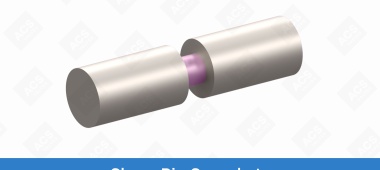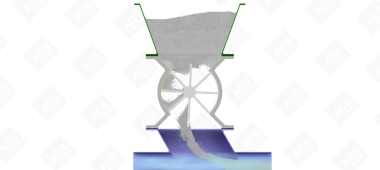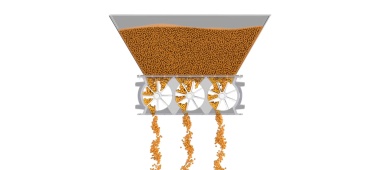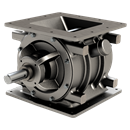Know your material: 8 characteristics defined
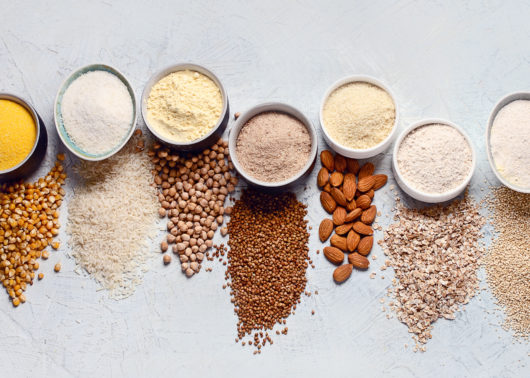
We live in a material world. That’s why we need awesome manufacturers like you to process grains, powders, pellets, flakes, regrind and all the other bulk materials necessary to keep our society going.
Each material has unique properties that affect how it behaves under specific conditions – how it flows, whether it sticks to surfaces or wears them down, and whether it can become a potential hazard to workers.
Last year we sponsored a webinar on flow aids, and it had some handy information about material characteristics. Watch a recording or keep reading for a quick breakdown of material characteristics, why they matter, and how they apply to rotary valve selection.
Who cares what my material characteristics are?
We care, for one! When you order a rotary valve from ACS Valves, we configure it based on the processing environment, your existing equipment and your material characteristics – primarily the material’s bulk density, flow rate, temperature, and abrasiveness or corrosiveness. All those factors tell us the best valves, coatings and features to recommend for more efficient, safe and cost-effective processing.
In general, material characteristics impact the flow of material through your system and, in turn, the other equipment or flow aids you may choose to keep things moving smoothly.
The characteristics may also affect NFPA compliance in your facility. If you’re not sure whether your material generates combustible dust, you should have it assessed by an accredited lab. If it’s combustible, a Dust Hazard Assessment (DHA) helps to minimize any associated risks.
The fateful 8: Material characteristics to know
Abrasiveness
Sometimes it’s as simple as this: if you’re conveying abrasive powders, they’ll wear down your equipment faster than other materials. Flow speed or velocity also influences how hard the materials will impact the surfaces. For improved abrasion resistance, ACS offers coatings such as hard chrome, tungsten and XTR-Coat for food-grade applications.
Attrition or friability
Friability relates to the durability of particles; it defines how well they break down into smaller pieces. If you’re looking to break down friable bulk material before it goes through a rotary valve, the Piece Breaker Flex is designed for just that.
Coefficient of sliding friction
This sounds complicated, but it just refers to the amount of friction and adhesion between the surface and particle. Too much friction can cause bulk material to plug, abrade or build up on equipment. A valve coated with Teflon or XTR-Coat works well in these nonstick applications.
Cohesion
A more cohesive bulk material is sticky! Particles stick or cake together, which is another common cause of plugging and buildup. It may also cause arching and ratholing in bins, silos or hoppers. Flow aids can help your overall process in this case, and a valve with XTR-Coat helps combat sticking. Also consider adding a rotor with U-shaped vanes for easier cleanup of this material.
Compressibility
As pressure conditions change, how does it affect the flowability of your material? Does the pressure below your valve cause material hang-up? That’s what compressibility defines. If you’re concerned about air or material blowback in your valve, a housing vent port comes in handy.
Explosibility
You can probably guess this one. As per the dust explosion pentagon, dust explosions arise from a combination of fuel, oxygen, an ignition source, and dispersion and confinement of dust. If your material is a potential fuel source, your rotary valve may require NFPA compliance and perhaps a TEXP motor for hazardous classifications.
Particle size, distribution and shape
This is another self-explanatory set of properties that is strongly linked to material flow. ACS has lots of ways to promote flowability of bulk materials: shear protectors for pellets, flakes and chunkier material; larger inlets for lighter material; and heavy-duty shafts for heavier material, to name a few.
Permeability
Permeability refers to how well gas or air flows through a consolidated mass of solids – is there resistance, or does it flow through easily? This will impact your choice of flow aids. If you need aeration in your rotary valve, a rotor pocket purge accessory does the trick.
I wish someone would just tell me what I need!
Your wish is our command. An ACS Valves expert can make specific recommendations to help materials move smoothly, efficiently and safely through your rotary valve. Give us a call to learn more.
Categories: Conveying Systems , Manufacturing
Go ahead, make your valve
Put your own spin on our customizable valves to get the best valve for your application, material and industry.

We have a series of items available for quick shipment
Items include: Pressure blower packages, MD Series, S-Pellet Series, Diverter Valves, Flex Tip Series, Screw Conveyors
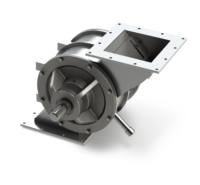
How to: Check rotor-to-housing tolerances
Keep your rotary airlock valve compliant with NFPA guidelines and maintain strong performance by checking your rotor-to-housing clearances regularly.
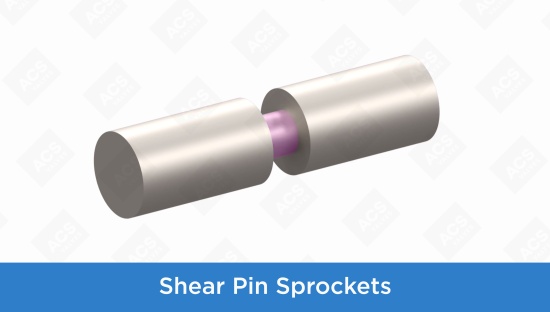
Newsletter
Stay informed on all things ACSWe’ll keep you up-to-date on the latest valve how-tos, handy tips, and news from ACS. It’s totally free and you can opt out at any time.

